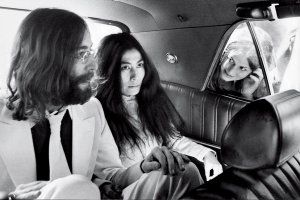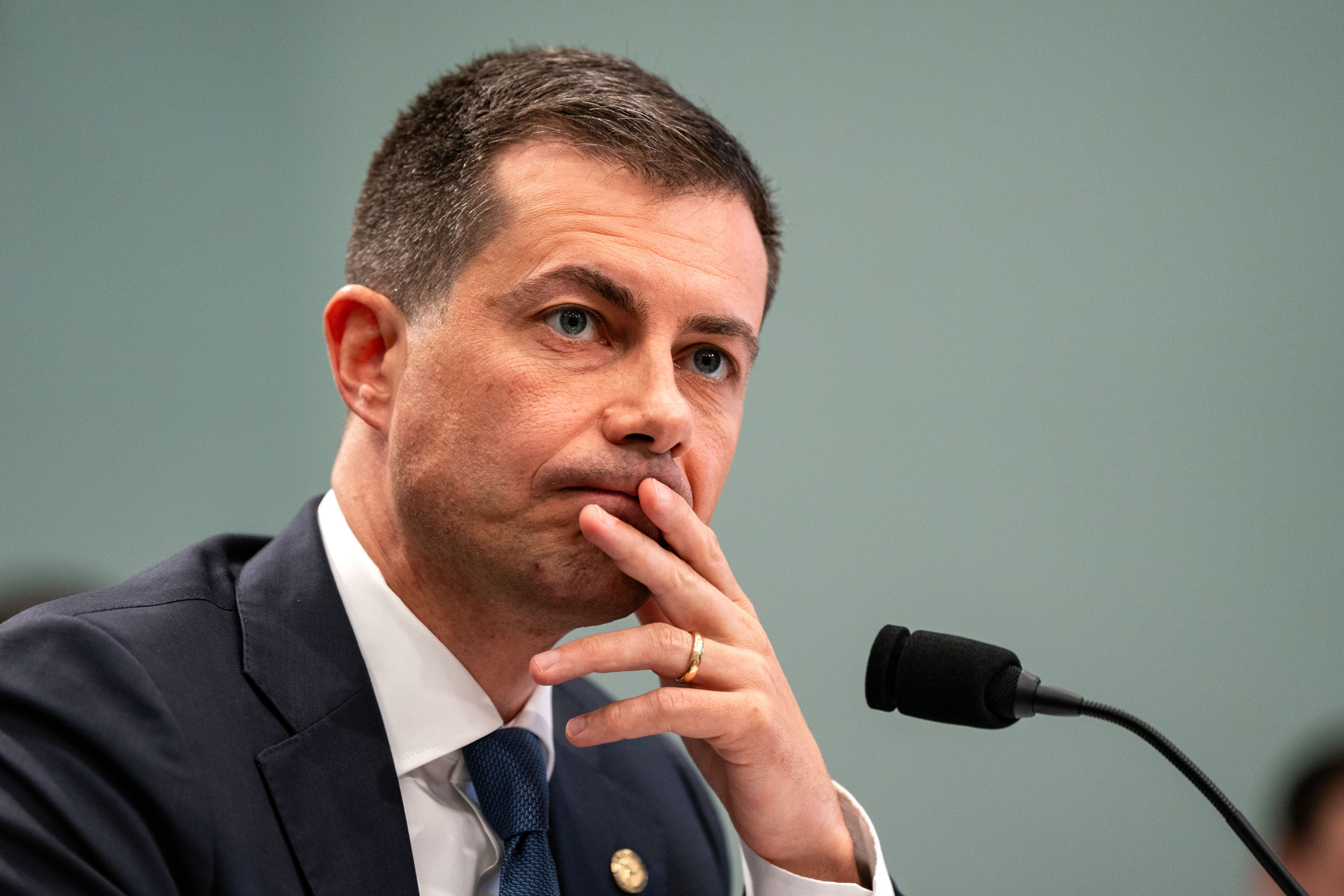
'Tis the season for John Lennon. The former Beatle had the misfortune of being murdered on Dec. 8, 1980, mere weeks after his 40th birthday, and so for the past few months we've had to endure a wearying deluge of documentaries, reissues, biopics, and exhibitions of the sort that only the twinned, round-number, life-bracketing anniversaries of an assassinated pop legend could possibly occasion. At first, it seemed as if the releases might reveal something new about Lennon's music. But now that the date of his death is approaching and the tributes haven't stopped, it's clear that the most revealing thing about this year's anniversary extravaganza isn't some remastered version of "Imagine." It's that Lennon's celebrity—the very thing that killed him—is still large and lucrative enough to inspire such a frenzy of "commemorabilia."
The hullabaloo is a reminder that Lennon, one of the most innovative musicians of the last century, was also a pioneer of fame—a man who courted, commented on, used, retreated from, and was finally consumed by his own gargantuan renown. In the process, he expanded our notion of what stardom could mean, and of what effect it could have. "Our life is our art," Lennon and Yoko Ono told Rolling Stone three days before he died—a novel sentiment in the days before reality TV. As the Kardashian industrial complex tightens its grip on our culture, it's worth reconsidering the lessons of Lennon's celebrity, both the ones we've learned and the ones we're at risk of forgetting.

In the dank basement dressing rooms of Liverpool and Hamburg, Lennon would fire up his fellow Beatles with a bit of call-and-response bonhomie. "Where are we going, fellas?" he'd ask, to which Paul, George, and Ringo would respond, "To the toppermost of the poppermost, Johnny!" Within two years they were there. The problem was that the "toppermost"—defined as the airspace above Elvis—turned out not to be the pleasantest of places. Onstage in Chicago, Lennon was hit in the head with a shoe. In Madrid, the band saw cops beating up its fans. Ringo, a Gentile, received an anti-Semitic death threat in Montreal; at the British Embassy in Washington, a diplomat cut off part of the drummer's mop top as a memento. Show after show, "cripples" (as Lennon unaffectionately called them) materialized backstage, in wheelchairs or oxygen tents, waiting to be healed. In Melbourne, a visiting Liverpudlian shimmied eight stories up a hotel drainpipe to tap on Lennon's window. He eventually offered the lad a drink, but the fanaticism on display was frightening. As Lennon told a reporter in 1965, "We'll either go in a plane crash or we'll be popped off by some loony." Justin Bieber's concerns are presumably less existential.
In the midst of the maelstrom, irony became Lennon's first line of defense. It was also the engine of his allure. From the start, he regarded his own fame with an air of amused detachment, analyzing and mocking the hysterical new mode of stardom he'd come to embody as though he were watching it from one step away. Summoned to perform for the Queen Mother at the Royal Variety Performance in November 1963, Lennon, of course, obeyed. But he couldn't resist exaggerating his bow and asking the audience to "rattle your jewelry" instead of clapping. The group's first U.S. press conference, held at John F. Kennedy International Airport the afternoon they arrived in 1964, was more improvisational, but no less pointed—a satire of self-promotion in real time, with Lennon leading the way.
REPORTER: Would you please sing something?
LENNON: We need money first.
REPORTER: What do you think your music does for these people?
LENNON: If we knew, we'd form another group and be managers.
While the rest of the Beatles were content to be silly, Lennon's quips cut a little deeper, razzing both his critics, who dismissed the group as a marketing gimmick, and his fans, who screamed at the mere sight of him. Whether he was imitating Hitler from hotel balconies (comb mustache, Teutonic salute) or pointing out that the Beatles suddenly seemed to be "more popular than Jesus," the message was the same: fame is a funny thing, and I'm in on the joke. Lennon's iconic predecessors—Frank Sinatra, Marilyn Monroe, Elvis Presley—played the parts the culture had cast them in. Lennon broke character so often that you could no longer ignore the distance between the person and the persona. He was the first meta-celebrity.
Starting in 1967, Lennon's anthropological attitude toward stardom began surfacing in his increasingly self-referential songs. "I Am the Walrus" name-checks "Lucy in the Sky With Diamonds," which was released only three months earlier. "Glass Onion" consists almost entirely of allusions to other Beatles songs. "The Ballad of John and Yoko" likens the couple's recent honeymoon tour to the trials and tribulations of Jesus. And in "God"—perhaps the most self-important pop song ever recorded—a liberated Lennon declares that he has been "reborn" as "John" after his long stint as the Fab Four's "dream weaver." "You'll just have to carry on," he tells his grieving fans. "The dream is over." Even in pop, this level of egoism is unusual; most artists would sound unbearably pompous dissecting their own stardom in song. But the size and scope of Lennon's celebrity was unusual as well, and that was the point. Fame was such a large part of his life that it had to be part of his art.
In retrospect, Lennon's willingness to let life bleed into art, and art into life, seems remarkably prescient. Today it's a prerequisite for stardom. Lindsay Lohan may have once aspired to be an actor, but her primary role, as the perpetually prison-bound star of a never-ending tabloid melodrama, has been enacted exclusively offscreen. Many of our most transfixing pop stars are the ones we first got to know, or got to know better, on reality television: Jessica Simpson, the American idols, Susan Boyle. The most popular program in MTV's recent history, The Hills, was about a gaggle of young, bronzed Los Angelenos who were famous for being on The Hills. And there's always Kanye West, whose Twitter account reads like a running commentary on his own celebrity.
Lennon was hardly the Paris Hilton of his era, but by showing that stars could mine their fame for inspiration and bend it to their will, he may have helped, in some small way, to make Paris Hilton possible. When he and Yoko posed nude on the cover of Two Virgins, or released Film No. 5, a 52-minute slow-motion shot of Lennon's face, or held a press conference in Vienna concealed inside a large bag, they were basically doing what Hilton did on The Simple Life: co-opting their renown as both a promotional tool and a topic of their work. Their savviest stunt—inviting a bunch of salivating reporters into their honeymoon suites in Amsterdam and Montreal, where they did nothing but talk about peace for two weeks—instantly set the standard for celebrity activism in the mass-media age. "We knew our honeymoon was going to be public anyway, so we decided to use it to make a statement," Lennon said in 1980. When Angelina Jolie and Brad Pitt lured the paparazzi to Namibia for the birth of their daughter Shiloh, then donated the proceeds from the sale of her baby pictures to a local charity, they were pulling a John and Yoko.
In 1975—shortly after warning of celebrity's side effects in "Fame," a song written with David Bowie—Lennon decided that the time had come to try living like a noncelebrity, or at least how he imagined they lived. It was to be the most radical phase of his long pas de deux with stardom. Ensconced in the Dakota with his newborn baby, Sean, he maintained what critic David Hajdu has called "an almost parodically conventional grown-up life." He baked bread and strolled his son around Central Park, content to let Yoko handle the couple's business affairs. He even listened to Bing Crosby records.
At the time, Lennon joked that he'd entered his "Howard Garbo, Greta Hughes" period. But while Garbo and Hughes were driven from public life by their neuroses, Lennon retreated deliberately, as a statement of willful domesticity that was remarkable only because it was such a departure from the male rock-star stereotype. "I don't have any hankering to be looked upon as [a] macho rock-and-roll singer," he said in 1980. "I was a househusband and I am proud of it." Lennon was never really a recluse. Otherwise, he probably wouldn't have written a song immortalizing his decision to "let … go" of the celebrity "merry-go-round" ("Watching the Wheels") or included it on a heavily hyped comeback album (Double Fantasy). For the former Beatle, retirement was just another attempt to renegotiate his relationship with fame.
Because of Mark David Chapman, it was also his last. Lennon had the dubious distinction of arousing the desire that eventually killed him; once he showed how much of a celebrity mass media could make you, there was no turning back. "I felt that by killing John Lennon, I would become somebody," Chapman said at a parole hearing in September. He was seeking "instant notoriety"—one of his victim's major innovations.
But looking back, it's clear that Lennon's most enduring achievement, aside from all those monumental songs, wasn't that he managed to become astronomically famous. It was the example he set by scrutinizing and seizing control of this wild new form of fame, then fashioning it into a functional thing. Before Lennon, celebrity was a reward for selling a lot of records, or movie tickets, or whatever. After him, it was an instrument, something to be played like a guitar. As he put it in 1968, "We've got this machine, and we'll try and make use of it, for good, and not just to have a machine." Today, the line between life and art is so blurry, and the eyes and ears of the world are so accessible, that everyone suddenly seems to be lusting after his or her own share of the spotlight. Lennon's life and death remind us how necessary it is to continue asking the question that consumed him from the start of his career to its savage end: what for?
Uncommon Knowledge
Newsweek is committed to challenging conventional wisdom and finding connections in the search for common ground.
Newsweek is committed to challenging conventional wisdom and finding connections in the search for common ground.





